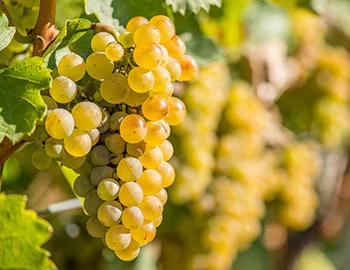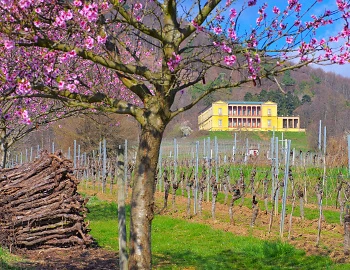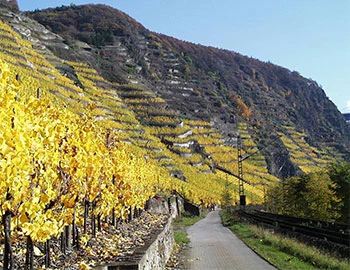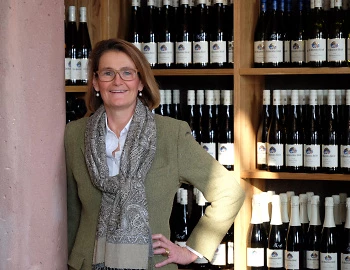Wachenheimer Goldbächel Riesling 2022
QbA Pfalz, Dr. Bürklin-Wolf, 750 ml

| Grape variety: | Riesling |
| Producer: | Dr. Bürklin-Wolf / Fam. Bürklin |
| Origin: | Germany / Pfalz / Wachenheim |
| Other vintages: |
Description
The Wachenheimer Goldbächel P.C. thrives on sandstone weathered soil and river gravel. It is named after a small creek that flows through the vineyard and is illuminated golden by the afternoon sun. This Riesling is very clear, fine and flowery with notes of flint. On the palate, it presents itself lush and salty-spicy, refined and very elegant with a long, salty-spicy and finish with grip.
Attributes
| Origin: | Germany / Pfalz / Wachenheim |
| Grape variety: | Riesling |
| Label: | Vegan, Certified organic or biodynamic wine |
| Ripening potential: | 8 to 10 years |
| Drinking temperature: | 12 to 14 °C |
| Food Pairing: | Hot Asian dishes, Goat's cheese, Giant crevettes, grilled langoustines, Hot vegetable curries |
| Vinification: | pressing the whole grape, fermentation in steel tank |
| Harvest: | hand-picking with simultaneous grape sel, in small boxes |
| Maturation: | in large wooden barrel/foudre |
| Bottling: | filtration |
| Volume: | 12.5 % |
| Note: | Contains sulphites |
Dr. Bürklin-Wolf / Fam. Bürklin
Riesling
The cold-weather king
The Riesling is the flagship of the German wine industry. It grows from north to south in all growing areas. It is also comfortable in the neighbouring Alsace region and in Austria. Its specialty is being vinified to a variety of degrees of sweetness, from bone-dry wines to ice wine. Moreover, thanks to its spirited acidity, it ages better than many reds. The typical Riesling smells of citrus, peach and apricot, shows hints of flint, and with maturity develops an idiosyncratic petrol note. It reflects its terroir like hardly any other white variety. Thus, it often gets fuller and more aromatic in Austria than in Germany. In Alsace, in turn, it has a particular mineral taste. Riesling is a wonderful culinary companion. It fits well not only with fish and shellfish, but also takes the heaviness from hearty meals. And with a fine sweetness and acidity balance, it works wonders for Asian cuisine.

Pfalz
Pfalz: Riesling meets Burgundy
Palatine winemakers manage the feat of vinifying top-tier crus from both white and red varieties. In addition, Riesling presents the same class here as Chardonnay and other Burgundy varieties. This versatility at high quality levels makes Germany’s second-largest wine region a trove of discoveries of all kinds. Tranquil winegrowing towns with a diverse range of culinary offerings and hotels make the Palatinate region a perfect wine travel destination.

Germany
Germany – Into the elite the hard way
Sitting in the heart of Europe, the hilly, lake-dotted landscape of Germany provides ideal, fertile soil for the most diverse vine varieties. From Albalonga to Zweigelt, over 140 different grape varieties are grown on about 100,000 acres, cared for by nearly 50,000 vintners. Most of these vintners are young, modern, internationally trained, inquisitive and urbane. It is hardly surprising, then, that German wine has a good reputation well beyond the country's borders.




